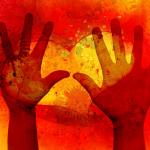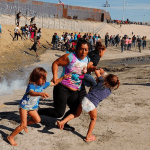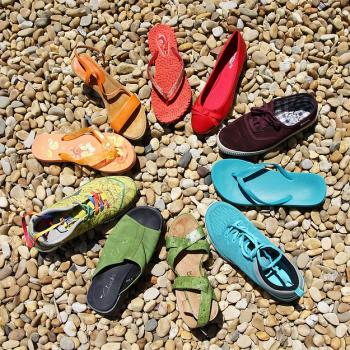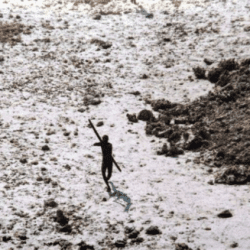Recently a marketing company offered me free tickets to see First Man, the new movie about Neil Armstrong’s walk on the moon, in exchange for me writing a review on my blog.
I went to see the movie on Friday evening, and I’ve been thinking about it since then.
Ryan Gosling and Claire Foy (who plays Neil Armstrong’s wife Janet) give exceptional performances. The film is suspenseful and emotional, offering a unique portrayal of an incredible story.
I left the theater feeling inspired. Not because I plan to be an astronaut or have ever seriously considered traveling to the moon, but because I was reminded of the grit and determination and focus and courage it takes to go to a place where most people on the planet would never dare to go.
The day after I watched First Man, I got word from a non-profit in South Sudan asking me to come back to teach and practice medicine. I was there last year, and I’ve been holding my breath since I got back, hoping to get word that it was safe to return. I’ve gotten the official green light, so I’ll be traveling to South Sudan in a few weeks to teach First Aid and practice medicine.
South Sudan is an active war zone. It’s capital, Juba, is one of the most dangerous cities in the world right now. Especially as a white American woman, it’s a dangerous place to go. But I’m going anyway, because I’m confident that that’s what I’m supposed to do. I’m supposed to leverage my skills and my voice and my community to care for our beautiful brothers and sisters who are enduring excruciating suffering.
When I went to the post office to mail my visa application for my trip last year, the post office employee who stamped the envelope asked me, “Why would you want to go to that God-forsaken place?”
That question echoed in my head as I walked the dusty roads in South Sudan a few weeks later, drove past bullet-riddled buildings, visited mass graves and cared for patients at a dilapidated hospital that had been out of anesthetics and malaria medicine and mosquito nets and vaccines for many months.
I saw things at the hospital that were so horrific that, to this day, I’ve never told anyone about them. I don’t want the images that haunt me to haunt anyone else’s head.
Why would you come to this God-forsaken place?
That question kept me up at night as I lay under a mosquito net in a stifling hot room at the guest house that was pitch black because the town’s electricity was down.
That question popped into my mind as men holding assault rifles ran through the town, sometimes just a few feet away from me.
That question occupied my mind as I walked the mile to and from the hospital every day, mentally and emotionally and physically exhausted from the suffering I witnessed but often was unable to solve given the lack of resources there.
One afternoon on my way home from teaching a First Aid class at the local church, I took a short-cut back to the guest house that led through a field of knee-high grass. As I was walking, I encountered a 10-year-old little girl who was sitting in the middle of the path, holding one of her bare feet, crying.
I knelt down and said, “I’m Sarah. I work at the hospital. Can I help you?”
She nodded and held out her foot. At least a dozen large thorns were embedded in the sole of her foot — she’d accidentally stepped on a thorny plant as she was walking into town to buy rice at the market.
I took forceps out of the messenger bag I was carrying, and gently removed each one, then wiped her foot clean and applied antibiotic ointment and a bandage.
When it was done, she jumped up with a beaming smile and hugged me, then skipped away.
The little girl who had been crying in the middle of the field was now skipping down the path, beaming with a smile that could light up a small country.
Why come to what people call a God-forsaken place? Because, I realized as I walked toward the guest house that day, No place is God-forsaken if people who express the love and compassion and mercy of God dare to go there.
No place is, as our president said, a shithole country if people there are treated with dignity and respect, and if their unique value is understood and esteemed.
No place – whether it’s the surface of the moon or a remote village in South Sudan – is unreachable if courageous, determined people go there.
And that’s the bottom line. That’s why I’ve gone to Togo and Kenya and the DR and South Sudan, and why I’m going back to South Sudan in a few weeks.
Because there’s no place Love won’t dare to go. There’s no risk Love won’t take, no price Love won’t pay, no place too far for Love to reach.
Love will travel the moon and back, just to get to us.
***
Please make a donation to my South Sudan trip here. One dollar buys a whole course of malaria medicine for patients there. If you can give even one dollar, you can save a life.
Please buy your copy of WELL here. The book describes the suffering I’ve witnessed as I’ve practiced medicine in the developing world, and uses medicine as a metaphor for how we can work together to make our wounded world well again. And the more copies people buy, the more I’m free to travel to these places to teach and practice medicine, providing tangible mercy for people who are suffering.
















